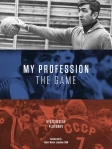Coaches are concerned with training load. The load that players are able to complete is decisive for their conditioning. More load (more or less) leads to fitter players. Hand in hand with training load coaches are concerned with recovery, or more specifically the relationship between load and recovery, i.e. fatigue. The faster players can recover from a given load, the faster players can be subjected to the next load. And the faster players can recover from a given load, the higher the potential performance level.
In order to manage that recovery, coaches must first have some idea about what the load has been and what the current level of fatigue is. The length of training is one (overly) simple method of measuring the load. The most current fad in volleyball is to count the number of jumps, probably using a VERT wearable device, and use that as a measure of load. Logically, as jumping is the main feature of volleyball, the number of jumps is a good proxy for overall load.
There are three problems with using jumps alone a proxy for training load. The first is the problem with measuring anything. What starts as a proxy for something, when you start measuring it ends up driving that thing. The second thing is that even if jumping were the only cause of load in training (which it is not), not all jumps are equal. High ball spikes, quick spikes, fast ball spikes, jump sets, jump serves etc are all different intensity jumps and contribute in a different way to load. Thirdly, training itself (however you measure it) accounts for only a fraction of the load that players must contend with.
These different loads can be seen in the different forms of fatigue that players exhibit. And each of those forms of fatigue requires a different recovery strategy.
Training Fatigue: Fatigue due to the amount of work done. This is the fatigue we most often think about and most often try to prevent. The length of training and the amount of work done contribute differently to the amount of fatigue that is induced by training. Reducing the number of jumps or the time at training can help counter work fatigue.
Emotional Fatigue: Performance sport requires a huge emotional investment from its participants. The closer players get to their ultimate performance level, the greater the emotional investment needed to reach that level and the greater the emotional fatigue after the event.
Psychological Fatigue: The total sum of pressures experienced by players creates psychological fatigue. Media, coaches, team function / dysfunction, management, fans and family all contribute to psychological fatigue. The best thing the coach can do here, is not to be an additional cause of psychological fatigue and to create a positive team environment, so that the team becomes a respite from the outside world.
Grind Fatigue: The season is long and doing the same thing over and over and over again leads to grind fatigue, and a general listlessness and lack of motivation. Variation in the daily and weekly routine and every so often replacing training with another activity can reduce grind fatigue.
Travel Fatigue: The amount of travel done for matches and the amount of time on the road creates fatigue. The organisation of free days needs to consider travel fatigue as well as training fatigue. Travel days are not free days.
Results Fatigue: Losing creates more fatigue than winning. Losing teams are always tired, winning teams are always less tired. You can only fix this by winning, although maintaining a general mood of positivity can impact this fatigue. That is hard to manage because poor results tend to increase the pressures from outside the team and therefore psychological fatigue.
Life Fatigue: Even for the highest level professional, sport is only a part of life. Like everyone else, players live in families, have relationships, spend time with friends, and have financial and other commitments they have to attend to. Away from the top level players study or work part time. Everyone engages in the world around them. Life also creates fatigue.
Load, fatigue, and therefore recovery, are, like everything in sport and life, multifaceted and require a multifaceted understanding and approach to their management.
The collection of Coaching Tips can be found here.
Read about the great new Vyacheslav Platonov coaching book here.

4 comments